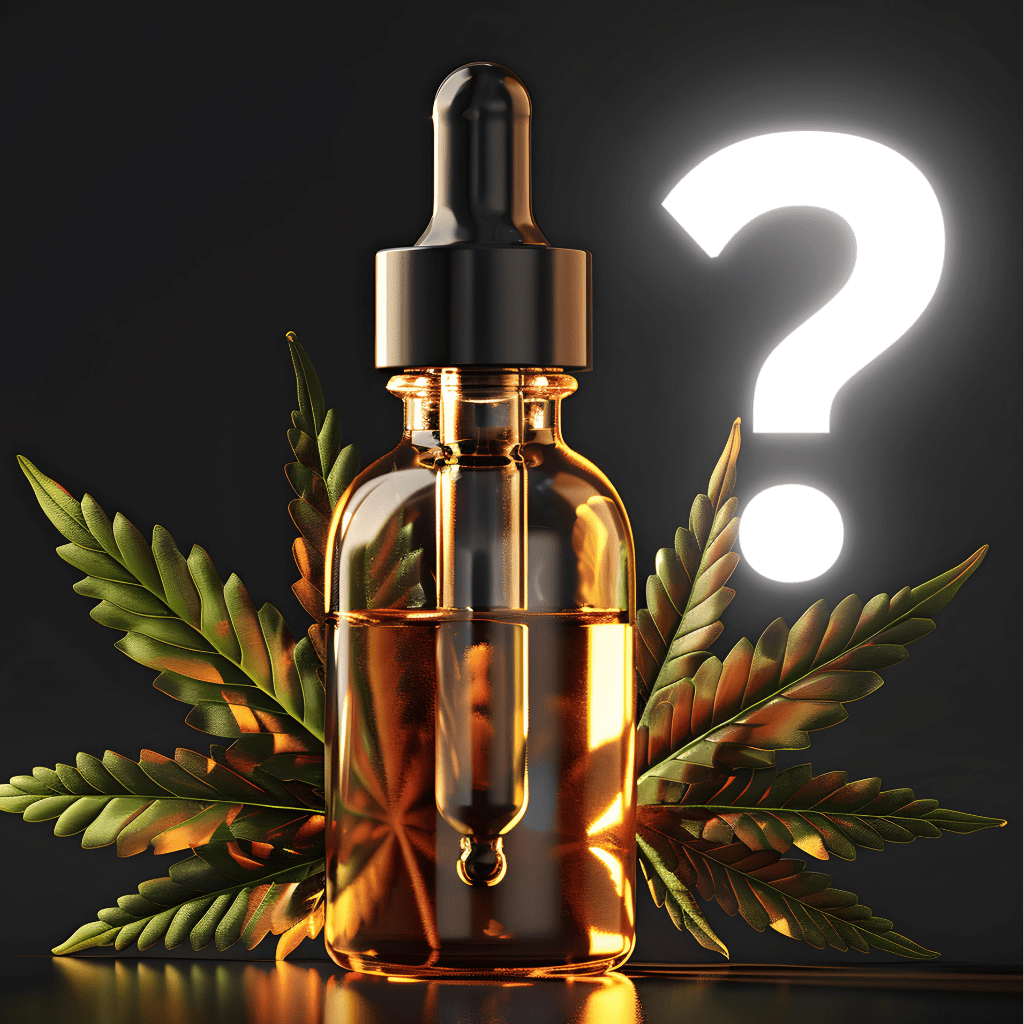Despite its massive growth in popularity and meteoric rise in use, a very common question we still receive is ‘What is CBD Oil?’.
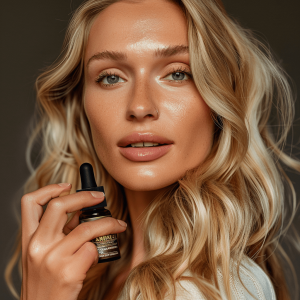
Understanding what it is, where it comes from and what it does will help you demystify it.
But more importantly, it will help you avoid misconceptions and pitfalls when you use it.
Although the use of CBD oil is widespread in Australia, it is poorly understood. Many people buy products they don’t need or that don’t work.
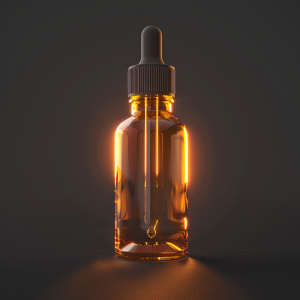
The uses of CBD oil are extraordinarily varied:
- Athletes use it to reduce soreness and enhance recovery.
- Many women use it to alleviate period pain.
- Older people with arthritis commonly take CBD oil for joint soreness.
- Many people use it to manage anxiety and stress.
It’s valuable, too, as a daily support for holistic well-being and mental energy.
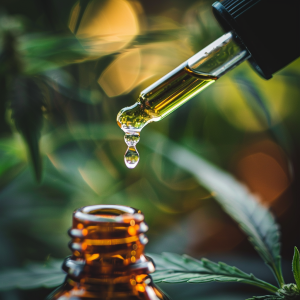
Regardless of how you use this natural extract from hemp, it’s crucial first to understand what CBD oil is.
The importance of this understanding has become amplified recently. CBD oil has become legal in more locations, such as Australia. Its increased availability means you should grasp the basics of the product if you’re considering buying it.

Since regulations changed in 2021, low-dose CBD oil is now available in pharmacies and can be bought without a prescription. Many people also buy CBD online in Australia. Arming yourself with the correct information about it is now invaluable.
This 101 guide on CBD oil will help you learn what it is, how it’s made and what it does.
We’ll cover everything you need to know, including tips on choosing the right product for your needs.
Contents
What is CBD Oil?
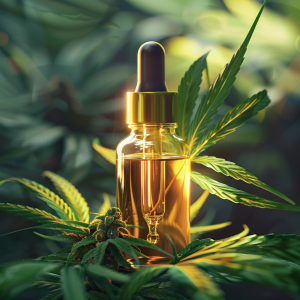
The cannabis plant contains a range of cannabinoids, which are bioavailable compounds that the human body can absorb.
One of these cannabinoids is called ‘Cannabidiol’, or CBD.
In its purest form, CBD is a crystalline powder. After being extracted from the hemp plant, the fully isolated cannabinoid becomes a crystal.
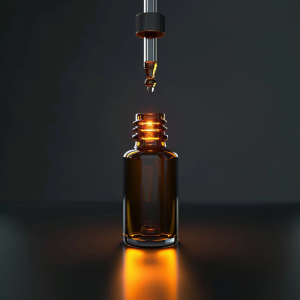
The pure powder form can easily be infused into various mediums to create consumable products. It’s frequently diffused in CBD gummies, ointments, capsules, edibles, and pills. Combining it into other mediums makes it easier to take.
CBD is rarely ever consumed as a powder. It’s most commonly taken in an oil form. This oil will contain the cannabinoid and other hemp phytonutrients, like terpenes and antioxidants.
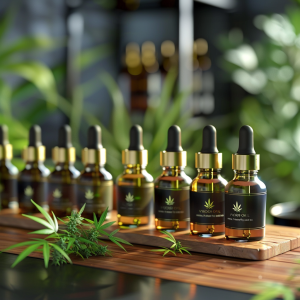
Despite being from cannabis, CBD isn’t psychoactive. It offers unique health benefits for the mind and body without causing any ‘high’ or intoxication. It’s suitable for health and recovery-enhancing purposes because of its therapeutic benefits.
The body absorbs CBD molecules via special receptors called ‘cannabinoid receptors’. These receptors exist throughout the brain, CNS and body. They are what make the cannabinoid usable.

Due to CBD oil’s rich therapeutic potential, scientists have extensively studied it for medical applications. For example, it is used in a clinical medication called Epidiolex to treat epilepsy. It has also been developed into numerous consumer products to promote well-being and assist with certain health conditions.
Does it Contain THC?

CBD oil in Australia won’t have THC in it above 0.3% concentrations, as it’s produced from industrial hemp as opposed to medical cannabis.
THC is the psychoactive cannabinoid that occurs in cannabis. It does have some therapeutic properties but carries a high risk of mental harm due to its psychoactivity.
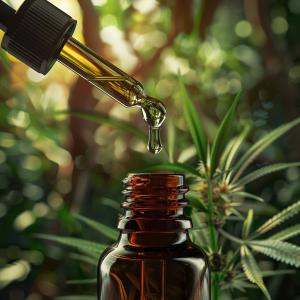
Due to being more potent than CBD, it also has much more significant side effects and can cause addiction. Lowering its concentrations in hemp enables CBD oil to be produced at higher purity and safety.
What are the differences between these two types of cannabis varieties?
Industrial Hemp

In Australia, most CBD oil is extracted from industrial hemp. While these plants are still ‘cannabis’, they’re extremely low in THC.
The plants have been selectively bred over time to modify the cannabinoids they produce. These hemp variants contain only CBD. In some cases, they may be cultivated to contain no cannabinoids. This is often the case for hemp being farmed for commercial purposes, like hemp fibre used in construction.
CBD oil made in Australia from industrial hemp correspondingly contains almost no THC.
Medical Cannabis
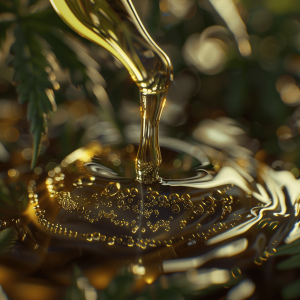
The other variant of hemp is medical cannabis. In Australia, this variety of the plant is strictly controlled and bred only for medical purposes. Unlike industrial hemp, medical cannabis contains high amounts of THC. It is used as a source of medical cannabis products that contain this cannabinoid. These are all prescription-only. Examples include cannabis oil, flowers, THC vapes and edibles.
Doctors can prescribe medical cannabis for very specific conditions when other treatment options haven’t proven successful.
What is CBD Oil Made Of?
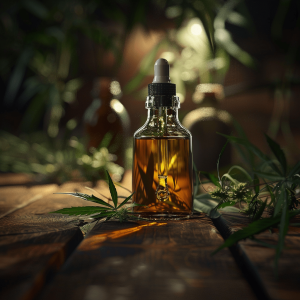
Now you know where CBD oil in Australia comes from, understanding what it’s made of should be more evident.
Pure CBD oil is highly similar to hemp oil in its chemical makeup. Both of these products are plant-based ‘oils’ as their name suggests. Oils from plants are made of fats.
This isn’t a problem in the case of oil from hemp, as the fats it contains are PUFAs or polyunsaturated fatty acids. PUFAs are incredibly good for you. They help to:
- Reduce the risk of heart diseases
- Support brain health
- Aid with cardiovascular function and blood pressure
- Offer antioxidative and anti-inflammatory benefits.
They help the body remove bad fats like LDL, helping lower cholesterol. CBD oil consists mainly of these fats, making it great for the heart and brain.

One tablespoon of CBD oil contains approximately:
- 130 calories
- 14g of fat
- 0g of protein
- 0g of carbohydrates
In other words, it’s almost entirely made of plant-based fats from hemp. While fats are high in calories per serving, this shouldn’t dissuade you.
CBD oil drops won’t add much to your caloric intake and provide nutrient-dense, antioxidative fatty acids. These nutritional benefits are a great complement to the product’s therapeutic properties.
What is CBD Oil Good For?

The popularity of CBD oil in Australia is due to the wide range of health purposes it can be applied towards. CBD oil is good for many things because of the broad-sweeping benefits of endocannabinoids in the body.
- Everyday health product: Many in Australia use CBD oil to improve their mental energy, mood, and focus. They might not target endocannabinoids towards a particular condition but instead use them to bolster overall health.
- Recovery & performance: endocannabinoids can help with recovery and exercise performance. That’s because they aid with stress management, lower inflammation and support metabolism. In combination, these effects boost performance in athletes over time.
- Sleep enhancement: It’s common for people to take advantage of the calming effects of endocannabinoids to sleep better. CBD oil is a great use for this, enabling users to sleep deeper and longer. Some find it helps them sleep faster by relaxing them at night.
- Anxiety and Depression: the product has antidepressant and anxiety-lowering qualities, helping users to remain calm, improve their mood and improve their mental state. It has natural anxiolytic qualities that promote relaxation and reduce racing thoughts.
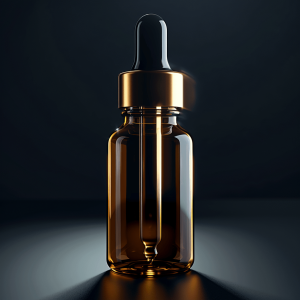
- Pain Management: CBD oil can help with some pain types, such as neuropathic pain. It does this by reducing our perception of pain through endocannabinoid activity. For acute or severe pain, it won’t offer much benefit.
- Epilepsy: Epidiolex, a CBD-based medication, is already being used to treat different types of epilepsy in both children and adults. It has neuroprotective properties, helping it to prevent neurological degradation, seizures and mental disorders arising from the misfiring of neurons.
- Sleep Disorders: The extract helps people rest and relax to ease into deeper sleep. It improves sleep quality and recovery from better REM phase sleep. Some even find it helps with mild insomnia.
- Inflammation: many cannabinoids and terpenes have anti-inflammatory properties and can help fight inflammatory conditions like IBS, colitis and rheumatoid arthritis. They help lower inflammatory markers by downregulating the inflammation response, reducing the production of pro-inflammatory cytokines. Cytokines are a signalling immune system protein but can stimulate tissue damage if excessively produced.
What’s in CBD Oil?
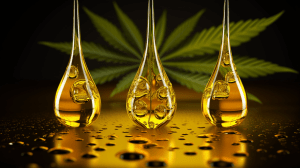
The compounds CBD oil contains will differ depending on the type of oil and how it was produced.
Let’s consider full-spectrum formulas here so you can understand the full range of nutrients that can be found in these products.
Here’s a quick summary of what is in the product:
CBDa
Full-spectrum CBD oil contains a range of minor cannabinoids, including CBDa. CBDa stands for Cannabidiolic acid, the precursor to CBD. When its acid molecule is removed via decarboxylation, it converts into CBD.

CBDa is found in the cannabis plant’s stems, leaves, and buds. It is highly anti-inflammatory and antioxidative. It offers particular benefits for metabolic health and helps to defend cells from damage. However, CBDa is less bioavailable in the human body and harder to absorb, making it less useful overall.
CBN
Another minor cannabinoid is cannabinol or CBN. This cannabinoid is derived from THC when it is chemically decomposed via oxidation (from high temperatures or oxygen exposure).
CBN is non-psychoactive and has excellent health benefits. Like CBD, it can activate the endocannabinoid system. It’s potent at stimulating sleep-regulating benefits. CBN can help with circadian rhythm, sleep length, REM-stage sleep quality and counteracting insomnia. It is known as the ‘sleepy cannabinoid’ for these reasons.
Trace Minerals
Full-spectrum CBD oil is a great natural source of trace minerals. It’s rich in salts such as phosphorus, calcium, iron, magnesium, potassium, and zinc, essential for maintaining brain, heart, and nervous system function.

They’re also great for exercise performance and recovery as electrolytes. Electrolytes are needed for nerve cells to fire correctly. Ensuring an adequate intake of them helps prevent muscle aches or cramps. Some minerals, like magnesium, are even effective for stress relief. They help support the immune system’s relaxation and optimal performance.
While it’s not usually the main reason people use CBD oil in Australia, its mineral content is a valuable complementary benefit.
Vitamins
CBD oil contains many vitamins that promote good health. Like many other plants, hemp plants have vitamin E, small amounts of C and B vitamins (such as folate), plus vitamin D3. These are essential for hormonal production, metabolism, mood regulation and cardiovascular well-being.
Polyunsaturated Fatty Acids
Many plant-based oils are rich in long-chain fatty acids, which are great for the brain and heart. This includes CBD oil. It’s similar to healthy fat sources from plants such as nuts and seeds, plus olive or coconut oil.

The primary healthy fats in the product are omega 3, omega 6, gamma-linolenic acid and alpha-linolenic acid. Each of these is antioxidative anti-inflammatory and can enhance cognitive function. They also help to keep the arteries clear and prevent heart disease. Using them daily is excellent for cardiovascular health and circulation. However, healthy fats are also used to produce and regulate hormones. Getting enough of them is vital to healthy hormone levels. Essential fatty acids like omega-3 are also neuroprotective. They can help protect neurons, bolster memory and aid with learning.
Phytonutrients
Phytonutrients are unique antioxidative nutrients that only occur in plant matter. Full-spectrum CBD oil contains over 80 phytonutrients, each with distinct health benefits. Like fruit and vegetables, hemp contains various helpful antioxidant compounds that help protect the cells and slow aging.
These include flavonoids, lignans, cannflavins, phytosterols, and terpenes. Many of these help protect, support, and repair cells. Additionally, they can assist the body in reducing and preventing inflammation. Consuming antioxidants from plants like hemp can help lower cancer risk, defend against inflammatory conditions, and reduce the risk of heart disease.
Will CBD Get Me High?

CBD won’t get you high. It is not psychoactive. It produces no “high” or consciousness-altering effects, even in high doses.
This is because CBD indirectly interacts with the CB1 cannabinoid receptors in the brain. It’s milder than THC, which powerfully acts on these receptors.
This interaction results in THC’s psychoactivity. It triggers a euphoric response and endorphin release when consumed.
In contrast, most people who use CBD oil report simply feeling calmer and at ease after taking it. However, their motor skills and cognition will remain unchanged.
It’s a far more suitable option for a broader range of people than THC because of its safety. CBD oil has a much lower risk of side effects plus won’t trigger mental disorders, unlike THC. THC can even cause psychosis in people with existing or underlying mental illnesses. It’s also addictive and can become habit-forming in those with predispositions.
Conclusion
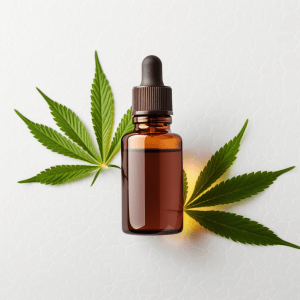
Let’s recap on what CBD oil is and what it does.
This product is a liquid extract derived from cannabis sativa through either CO2 or solvent extraction.
It has potent therapeutic properties via the endocannabinoid system.
The oil itself is made of naturally occurring healthy fats from hemp.
Because of its cannabinoid and nutrient content, CBD oil is suitable for both holistic well-being and targeting relief from particular health problems.
It’s known to help lower anxiety, alleviate pain, promote better sleep, and fight inflammation.
Experiment to find the CBD oil option in Australia that best meets your needs. Regardless of the formulation, you should always seek out CO2-extracted products. These are of higher purity and lower risk of contamination than extracts produced using solvents.
Notably, CBD oil won’t get you high and is not intoxicating. It’s much safer to use than products that contain THC.
FAQs
CBD is different to Marijuana. CBD is a cannabinoid that is extracted from cannabis but isn’t psychoactive. It’s only used for therapeutic purposes. In contrast, Marijuana is a variety of cannabis bred to contain high amounts of THC. It will include various cannabinoids, including CBD, but it is not legal in Australia and has the potential to cause mental harm or addiction. CBD can be derived from both hemp and marijuana plants. It does not produce a “high” because it is non-psychoactive.
CBD oil is widely known to be very safe, but there are some side effects or downsides to be aware of. In particular, new users or those taking high dosages are at higher risk of experiencing some of the following common adverse reactions: dry mouth or low saliva production, gut irritation and diarrhoea, reduced or increased appetite and drowsiness or dizziness.
CBD impacts the liver’s P450 enzyme levels when consumed. If combined with other medications that are also broken down in the liver, it can cause liver toxicity in some cases. Don’t mix it with your medications unless you first clear any potential risks with your doctor.
CBD itself is not a drug, but it may be included or isolated in various cannabis medicines. For example, in Australia, the TGA has approved a range of low and high-dose CBD products to be sold via prescription.
Like any bioactive compound, CBD has pros and cons. Despite being entirely natural and safe from plants, it has downsides that can be experienced if the product is misused or combined with other medications.
Pros:
CBD oil can help relieve pain, particularly neuropathic pain and minor aches.
Anxiety and stress can be reduced using it via its anxiolytic and calming qualities.
CBD’s neuroprotective effects mean it can assist in fighting epilepsy, preventing neuro-degradation and supporting reduced neuroinflammation in the brain cells.
Non-psychoactive and non-addictive: it isn’t habit-forming and doesn’t act on the dopamine system.
Cons:
While generally mild, CBD has several noted side effects to be aware of, like drowsiness.
Lack of regulation in the market means many CBD products in Australia are fake or mislabelled, making them often risky to buy and use.
Travelling with CBD oil can be tricky as you must always carry your prescription or purchase receipt. Going overseas with your product isn’t always possible as it’s illegal in many countries (despite being legal in Australia).
CBD has both analgesic and anti-inflammatory properties, making it helpful in suppressing joint or arthritis pains and aches. It helps lower nociception or our subjective feelings from nerve pain signals. Many users with arthritis have reported finding relief from the aches in their knees and elbows. It also helps reduce inflammation, which accompanies joint conditions like rheumatoid arthritis resulting from chronic inflammation.
CBD oil is known as a potent stress and anxiety-alleviating chemical because of its action on the endocannabinoid and serotonergic brain receptors. It can stimulate feelings of calmness and better mood, plus reduce distress, which helps it promote resilience against anxious feelings. Studies have shown promising results in its anxiolytic potential, in addition to presenting antidepressant qualities. These effects are common to many other cannabinoids like CBN and CBG, plus many terpenes such as linalool.
CBD interacts with cannabinoid type 1 receptors in the brain’s endocannabinoid system plus can directly affect the serotonin and vanilloid pain receptors. Each plays a role in regulating neurological processes, including pain perception, mood, and sleep or circadian rhythm. CBD’s effects via its brain receptor interactions include reducing depression and anxiety, modulating pain perception and protecting the neurons from misfiring or being damaged by oxidation.
Typically, CBD will kick in within 1-2 hours of being ingested and last for around 4-5 hours in its duration of effect. The onset of initial effects can vary in timing, depending on factors like weight and metabolism, how the product is consumed (e.g., orally vs. transdermally), strength and dosage, and whether it’s consumed with food. The fastest-acting forms of CBD are inhaled or taken sublingually, as they can diffuse into the blood the most rapidly. These can take effect within 15-30 minutes but will still usually require an hour or two to reach their full results in the body. Some individuals don’t feel the effects of CBD at all but may still be deriving its health benefits.
Most CBD oils are ‘whole plant’ extracted or produced from all parts of the cannabis plant. The advantage of this is that it provides a blend of cannabinoids and nutrients in the product because each plant part has a different concentration of these nutrients. The cannabis plant’s flowers, leaves, and stalks all contain CBD and other cannabinoids, but they’re most concentrated in the buds and leaves.
